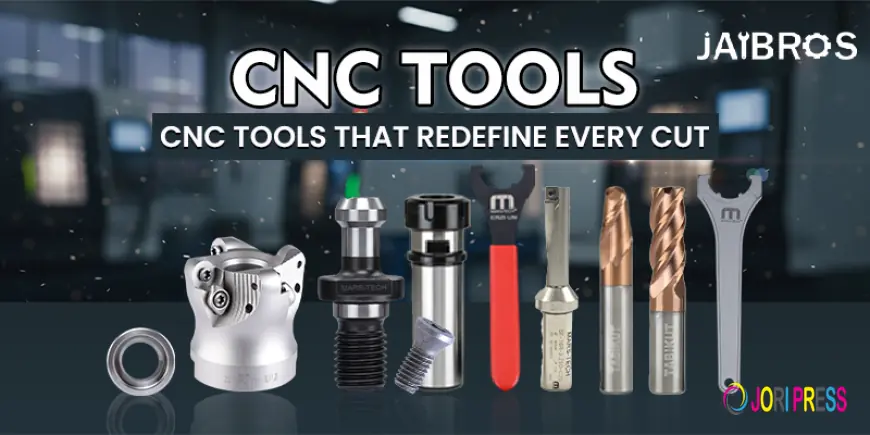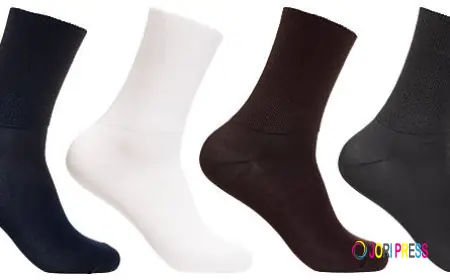From Roughing to Finishing—The Best CNC Tools for Working With Precision
Discover the best CNC tools for every stage of machining—from roughing to finishing. Learn how the right tools improve accuracy, performance, and tool life.

In the changing, fast-moving world of manufacture and machining, success is determined by precision and efficiency. No CNC tools machining device can perform optimally unless it has the best quality of tooling fit for purpose. This is where CNC tooling assumes importance. These tools perform the operations of cutting, shaping, drilling and finishing with an unparalleled accuracy. If you are in metalworking, woodworking, produce custom components, etc., then correctly choosing tooling can affect the difference between mediocre performance and exceptional performance.
Understanding CNC Tools and their Importance
The area of CNC (Computer Numerical Control) machining has completely transformed the industrial processes with its automation and precision of cutting and drilling actions. Machines do not improve efficiencies, but the tools do the cutting, shaping, or drilling.
Quality Tools:
-
Improve accuracy
-
Reduce cycle time
-
Increase surface finish quality
-
Increase tool life
The better the tool, the smoother the operation, and the less it will wear or break.
Popular Types of CNC Tools Used in Machining
Here are the most common types of tools that make machining easier:
1. End Mills—The Versatile Cutting Tools
End mills can be used for:
-
Cutting edges
-
Slotting
-
Profiling
-
Surface machining
There are end mills made of carbide, cobalt, and high-speed steel. End mills can perform both roughing and finishing depending on flute quantity and coating.
2. Drill Bits—The Hole-Making Tool
Carbide drill bits are the most common drill bits that precision cut holes. Carbide drill bits are heat resistant, keep their cutting edge, and can handle continuous cycles of machining with consistent results.
3. Turning Tools—Preferable Tools for CNC Lathe Machines
Turning tools are used to cut cylindrical parts as the tool removes material from the rotating part. Turning tools keep facing, threading, grooving, and parting.
4. Threading tools—making internal & External Threads
You require a threading tool if you are manufacturing bolts, nuts, threaded rods, or a threaded part that is used in machinery.
Roughing versus Finishing—Which Tools Should I Use?
Earlier I presented a table format, but here is the written explanation in paragraph form as requested:
When you begin machining a block of material, the first stage is roughing, where the primary intent is to remove as much material as possible, and fast. During this stage, it is essential to use heavy-duty and aggressive cutting tools; tools that are suitable for roughing are roughing end mills. Roughing end mills are designed to take on higher feed rates and more significant depths of cut. Once you have rough-cut the piece, you move onto the finishing stage. During the finishing stage, the focus is now on precision and a good visual finish. Finishing tools are
designed for precision and a more pleasing surface finish, such as fine flute end mills and/or profile mills—the goal at this stage is accurate sizes with surface quality. Selecting the correct tool for each stage helps limit machine load and time and enhances overall consistency of output.
Overall, using the correct tools for each stage will produce an efficient and generally longer tool life.
Important Considerations for Choosing the Right CNC Tools
Choosing tools involves more than just selecting a cutter to purchase and using it to make a tool path. You should consider:
-
Hardness of material being cut (steel, aluminum, copper, etc.)
-
Feed rate and cutting speed
-
Tool details or coating
-
The machine spindle with the selected tooling for use and the tool holding system
In addition, it is helpful to get whatever you need from trusted CNC tooling suppliers , because unlike buying from someone on the internet or another source, a reputable supplier will generally ensure better quality, specifications, and support or guidance.
Advantages of Quality CNC Tooling
Using high-quality tooling delivers clear benefits.
-
Greater tool longevity
-
Improved finish quality
-
Reduced vibration
-
Less wear and tear on tooling
-
Longevity of machine life
This is why machinists, contractors, and various industries choose a quality tool over price.
Where to Purchase CNC Tools?
When purchasing tooling, don't skimp on quality. Features to consider are:
-
Coating type
-
Material grade
-
Tool geometry
Several companies offer bundles of the best CNC tooling that are tailored for performance and long life. Additionally, some platforms simplify your purchasing choices by allowing you to browse and order by tool type, material, size, etc. A good online tool shop provides filters and full specifications to assist in purchasing the right tool.
Why Jaibros?
If you are looking for reputable industrial cutting tools from an integrated brand, Jaibros can be your easy choice. They have:
-
Superior quality CNC cutting tools
-
Precise carbide drills and end mills
-
Quick delivery of genuine product
With their online shopping tools, you will find yourself able to make selections and purchase your selected tools online, quickly and hassle-free. Whether you are with a manufacturing unit or a CNC job shop, Jaibros has excellent tools that are durable and facilitate improved machining performance.
Conclusion
Choosing the right CNC tool will get you better output at a lower production cost. When you have the right tool, the process becomes faster, smoother and ultimately more accurate. In this early stage of production, from roughing through to finishing, there is always the need for a tool that is designed to take the stress of the load with the specific accuracy needed. It is as simple as that—choose smart, machine smart and grow your productivity.
Frequently Asked Questions
1. What is the difference between roughing and finishing tools?
While roughing tools are employed to rapidly remove material, finishing tools are used for obtaining dimensional accuracy and superior surface quality.
2. How do I know which CNC tools will work best for my material?
Check for your material's hardness level, and select the tool's coating and flute style based on that material.
3. What causes wear of CNC tools?
Premature wear can occur from using the wrong cutting speed, overheating, using improper cutting fluids, or using a tool of poor quality.
4. Why are coatings important for tools?
Using coatings on tools will help to minimize friction and heat while improving the life and efficiency of the tool.
5. Are premium CNC tools worth the investment?
Yes, high-quality tools will wear as little as possible and are more productive, which will minimize cost over time.
What's Your Reaction?
 Like
0
Like
0
 Dislike
0
Dislike
0
 Love
0
Love
0
 Funny
0
Funny
0
 Angry
0
Angry
0
 Sad
0
Sad
0
 Wow
0
Wow
0
















































